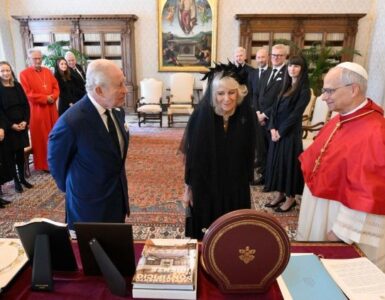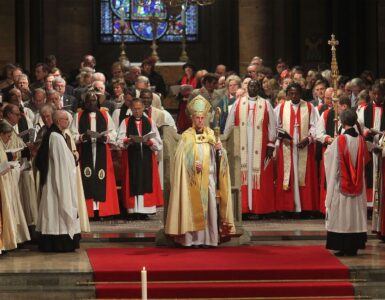Michael Haynes
The Vatican’s safeguarding commission today urged the Holy See to be more transparent regarding the resignation of clerics, when related to issues of abuse.
Publishing its second annual report today, the Vatican’s Pontifical Commission for the Protection of Minors (PCPM) continued its appraisal of the Catholic Church’s response to the much-reported abuse crisis.
The document presents the practices and policies of bishops’ conferences who have made ad limina visits to the Vatican during its reporting year, along with one of the Roman Curial departments. Examining the calendar year of 2024, PCPM examined – among others – the response of many countries in Africa, while closer to home it also looked at the Italian bishops and the Vatican’s Dicastery for Evangelization.
It highlighted six main elements for actioning, which should form part of a recommended vademecum, listing areas which “the Church must further address in order to fulfil its fundamental obligations to victims/survivors.”
The PCPM’s recommendations include:
- Welcome, listen, and care: “Creating safe spaces where victims/survivors can share their experiences, including directly with Church authorities if they so desire.”
- Communications, both public and private apologies: “Issuing official Church statements that acknowledge the harm caused and that assume responsibility on the part of the Church as a whole.”
- Spiritual and psychotherapeutic support: “Guaranteeing access to professional counselling, spiritual accompaniment, and pastoral care, with special attention to victims/survivors over the long term.”
- Financial support: “Providing adequate financial assistance to victims/survivors for costs incurred as a result of abuse, including medical and psychological care, as a vital element in the healing process.”
- Institutional and disciplinary reforms: “Strengthening safeguards for the protection of minors and vulnerable adults, with meaningful sanctions for perpetrators and enablers of abuse.”
- Safeguarding initiatives in the ecclesial community: “Implementing awareness programmes directed at clergy, religious, and lay faithful to foster a process of collective healing.”
The PCPM is led by Archbishop Thibault Verny, who took over from the first prefect of the Commission Cardinal Sean O’Malley earlier this year. The investigative group operates under the umbrella of the Dicastery for the Doctrine of the Faith, and a DDF official commented last year that around 77 percent of abuse cases the office tackles involve minors.
Despite its overarching view of the Church’s response and policies in the field of safeguarding, the PCPM does not hold legislative power over bishops’ conferences of Curial offices, and is limited to recommendations.
But one such recommendation was notable since it involved a return to a practice which the Vatican has quietly dropped.
The PCPM urged that the Church develop a better communications strategy when a cleric resigns:
“In line with the lessons learned from the current study on reparations, the Commission underlines the importance of clearly communicating the reasons for resignation or removal, and issuing a public statement when these reasons are related to the abuse of minors or vulnerable adults, negligence, or less serious actions that nonetheless may have led to such a decision.”
Upon reaching 75, bishops must submit their resignation to the Pope who then decides to accept it immediately or at a later date. Pope Francis expanded this to most officials in the Roman Curia.
Canon 401 outlines this: §1 accounting for a resignation upon the age of 75, §2 accounting for a resignation if the bishop has “become less able to fulfill his office because of ill health or some other grave cause.”
Formerly the Vatican’s press office would indicate if a bishop’s resignation was due to §1 or §2 of this canon. That practice – unsatisfactory for many in the lack of details – has died out in recent years, meaning that very often little to no information is given in the case of an unexpectedly early resignation.
For some time, Vatican analysts have been clamoring for the Holy See to reinstate the practice. Veteran Catholic journalist Phil Lawler noted back in 2012 that:
“for years now we have seen the same canon 401-2 invoked to explain the resignations of bishops who have departed in disgrace after some personal scandal. The terse Vatican announcements never distinguish between the bishops who are forced out because of gross misconduct and those who are genuinely ill. That’s a disservice to the prelates whose weaknesses are merely physical.
The need for greater transparency has been made especially clear in the wake of abuse scandals such as the McCarrick case, and it seems now that the PCPM has made the plea of many concerned Catholics its own.
Michael Haynes is an English journalist working as part of the Holy See Press Corps. You can follow Michael on Twitter or via his website Per Mariam.




